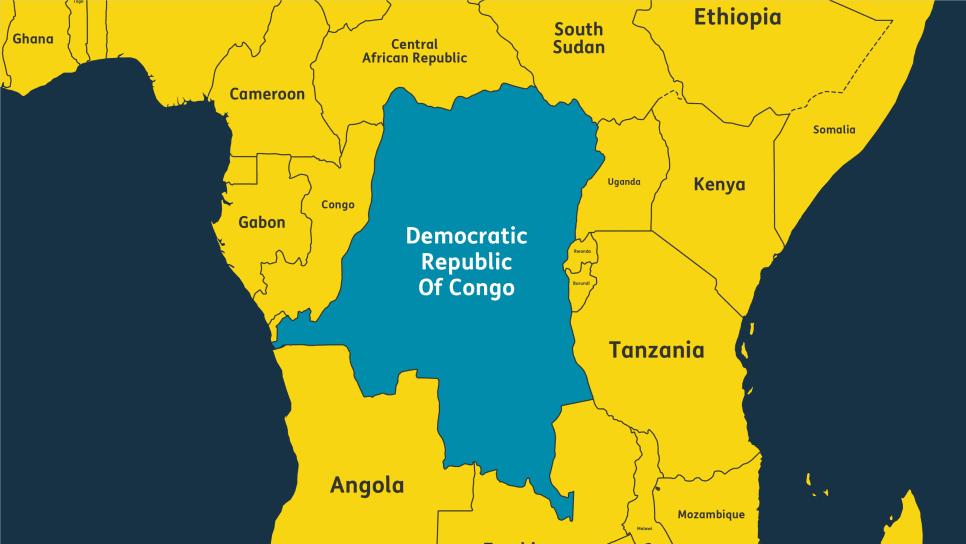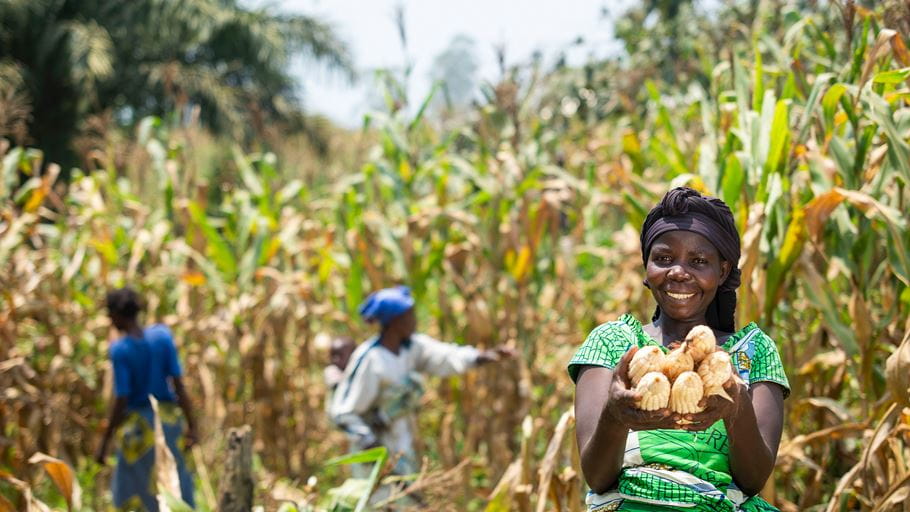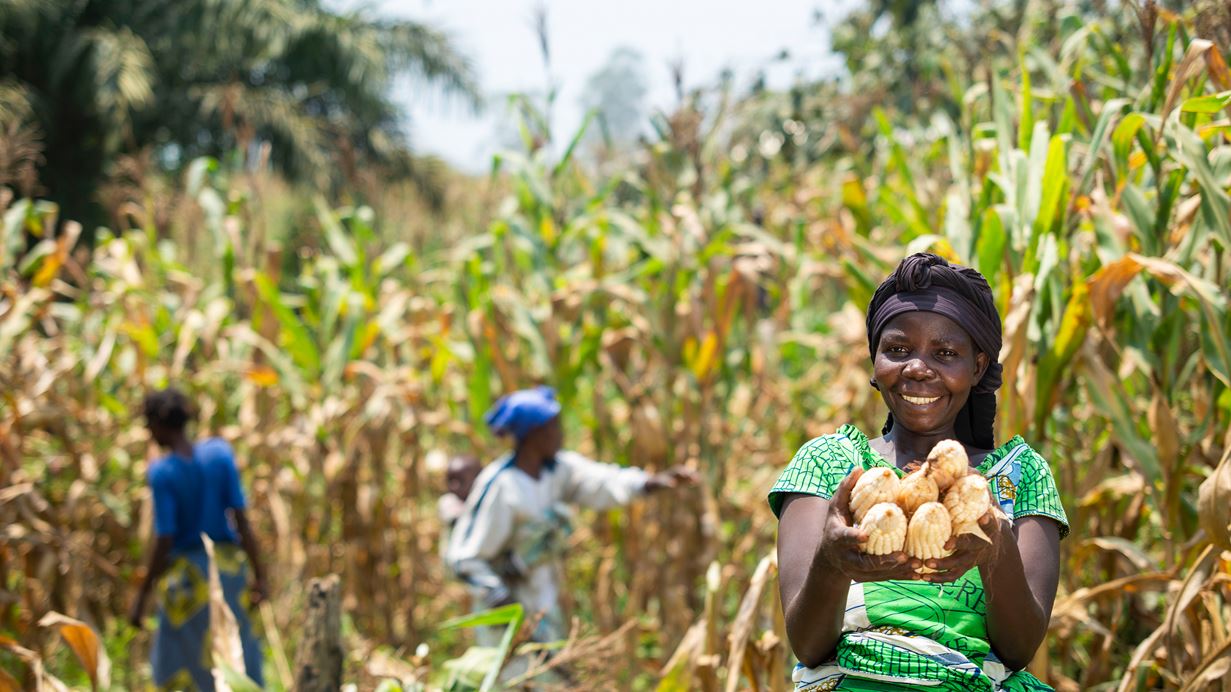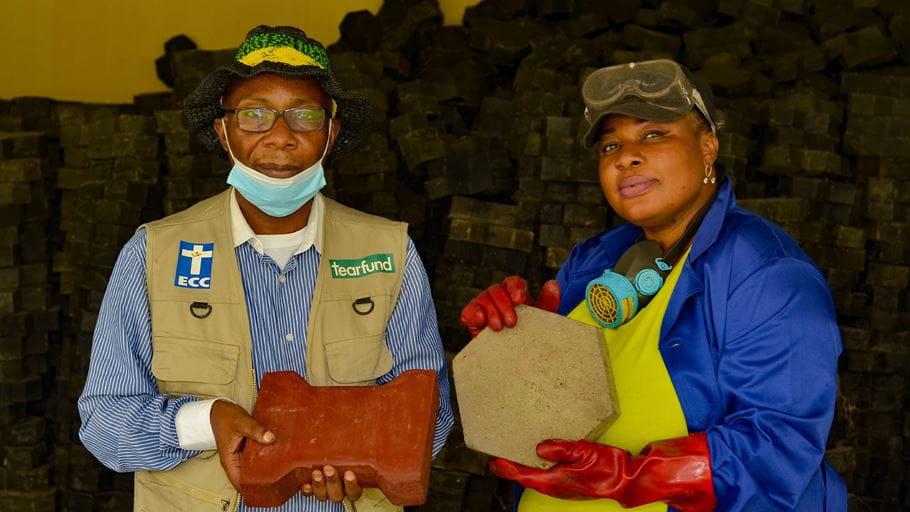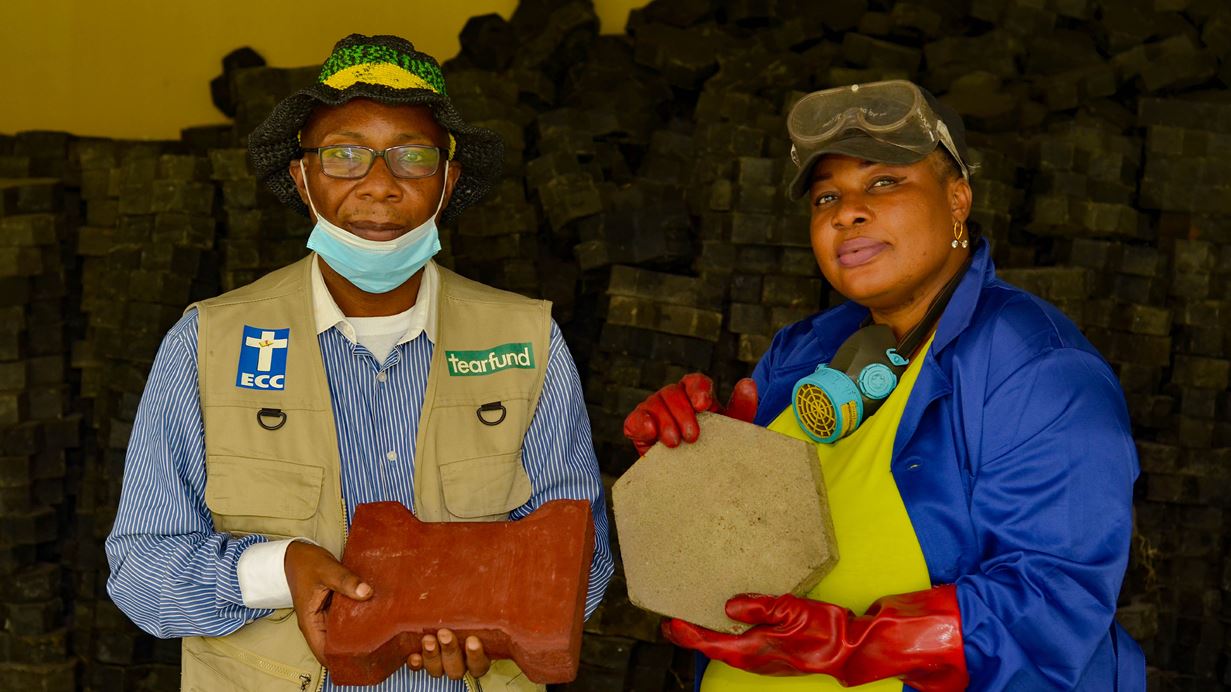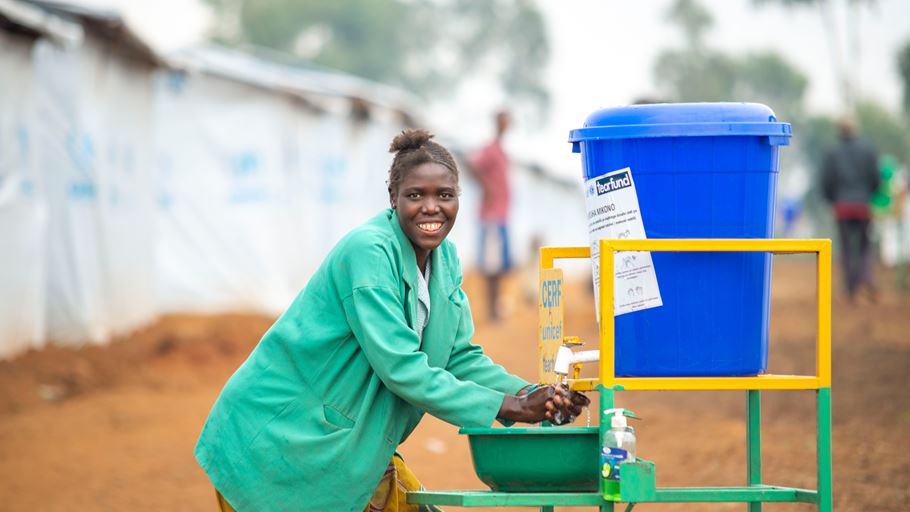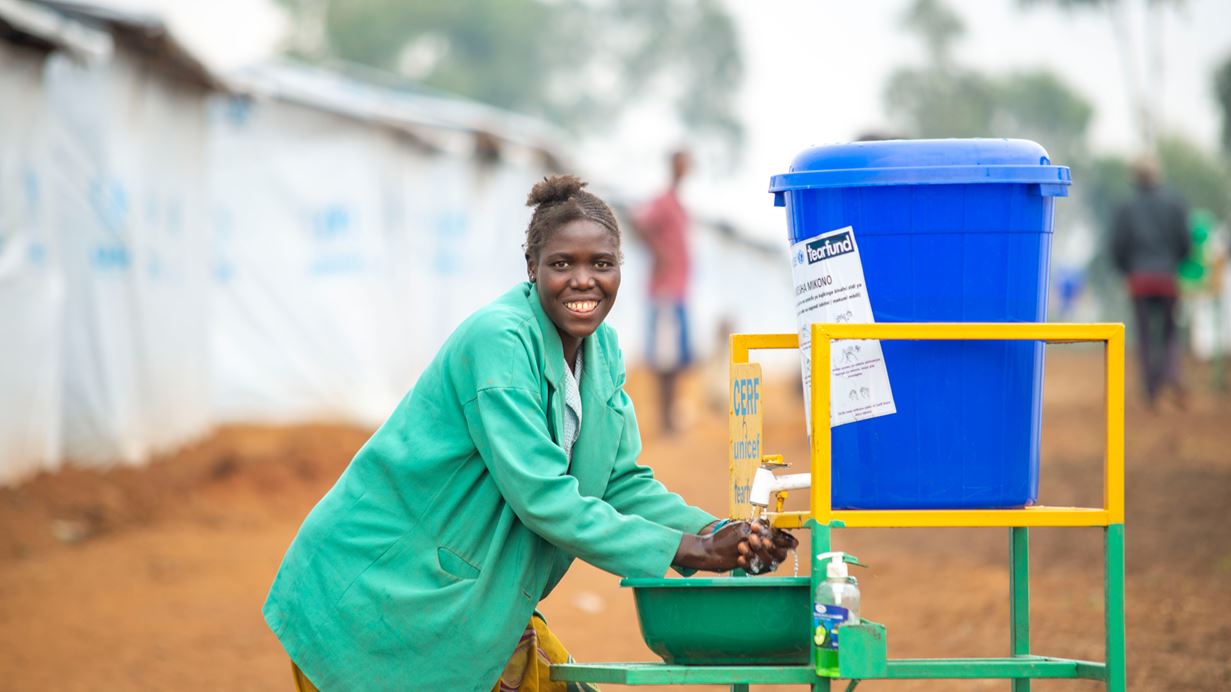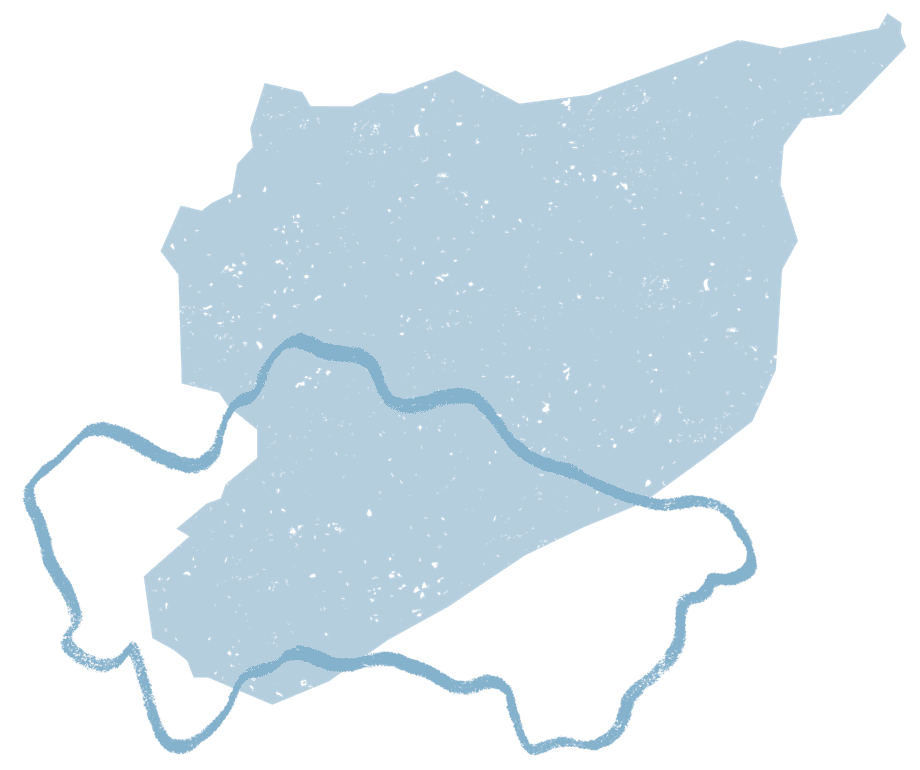Our work in the DRC
Tearfund has been working in the DRC through local partner organisations since 1986, and our own operational team has been working there since 2002. We are focusing on; peacebuilding initiatives, providing humanitarian aid, supporting community development, and preventing sexual and gender-based violence (SGBV).
Emergency response work
We respond to humanitarian disasters to meet emergency needs with practical support and supplies. We also carry out disaster risk reduction activities with communities and partner organisations to strengthen their capacity to cope with future disasters, and reduce their long-term vulnerabilities.
Water, sanitation and hygiene (WASH) projects
Despite being a water-rich country, nearly 8 million people in the DRC don't have access to clean water and adequate sanitation. We help communities gain sustainable access to safe water supplies and safe and appropriate sanitation, and to realise the benefits of good hygiene practices. This work is helping to reduce waterborne diseases in the poorest communities.
Tearfund meets emergency water and sanitation needs and also works with local communities to ensure that water systems are sustainable and well-managed in the long-term.
Tearfund has extensive experience as a WASH responder to epidemics and pandemics, including during the recent Ebola epidemic and the ongoing coronavirus pandemic. This includes community messaging about transmission and prevention, as well as equipping health facilities to respond effectively.
Encouraging sustainable farming
We provide seeds, tools and training in sustainable farming methods to help individuals and communities grow more crops and have access to enough nutritious food all year round. In this way, we are providing a sustainable response to food insecurity in the DRC, without creating dependency on outside aid.
Addressing sexual and gender-based violence (SGBV)
In a country where 57 per cent of women suffer physical or sexual violence in their lifetime, we use our Transforming Masculinities approach to prevent and address sexual and gender-based violence in communities.
We work towards reducing stigma for survivors, equipping communities to support survivors, promoting gender equality, and providing positive models of masculinity. This approach has been found to reduce intimate partner violence by up to 50 per cent.
Transforming plastic waste
In the capital city, Kinshasa, plastic waste lines the streets and waterways. We are working to turn this plastic waste into marketable goods including paving stones, bricks, brooms and bags. Through this project, we are currently removing 11 tonnes of plastic waste from the streets of Kinshasa every month.



